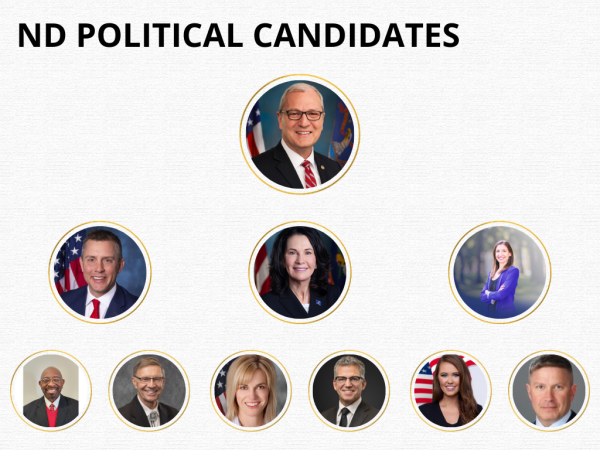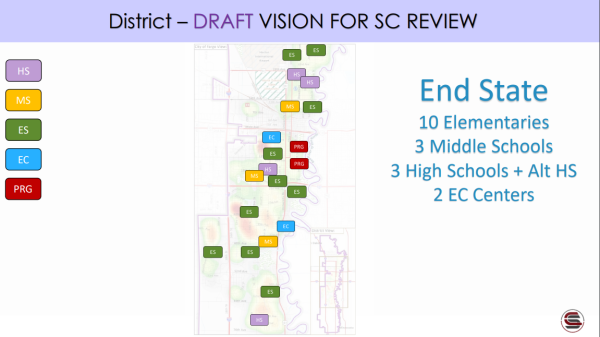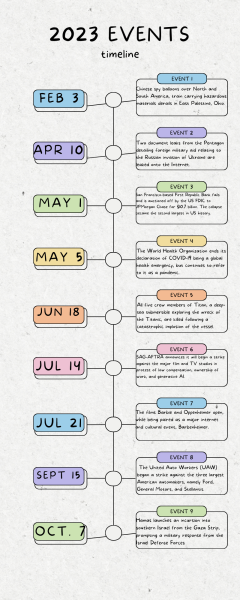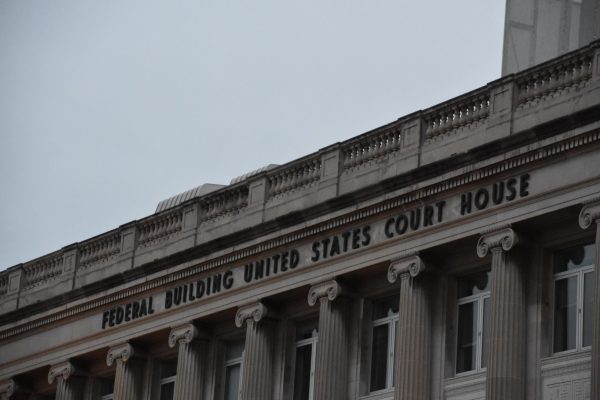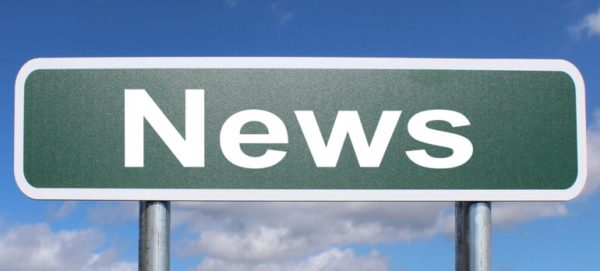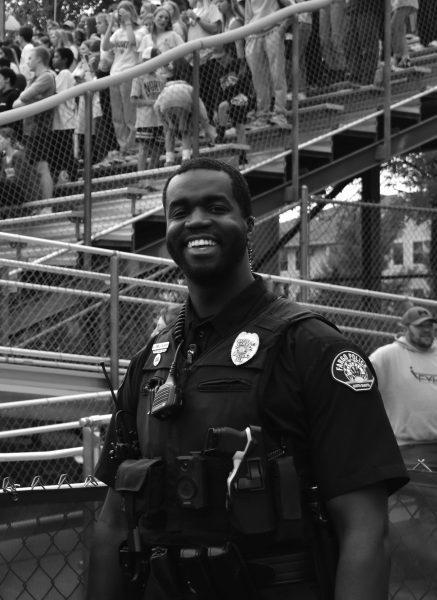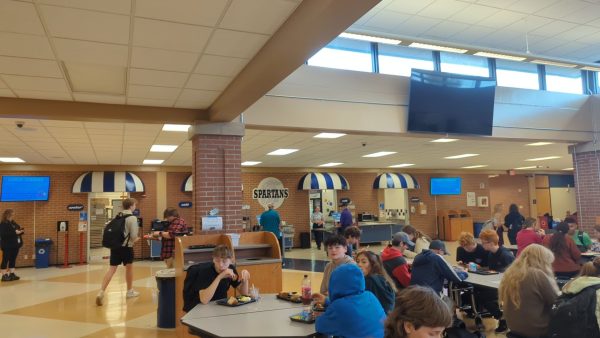ND ballot has four statewide measures
October 30, 2018
If you’ve tuned in to any local news channels on TV in recent months, you probably were quickly overwhelmed by the vast number of ads featuring the upcoming November midterms. The most prominent feature for North Dakota is the close race for the US Senate between current senator Heidi Heitkamp and her opponent Kevin Cramer who has served on the House of Representatives.
This election also puts all 435 seats in the House of Representatives up for bid, but only one of those is in North Dakota. The race contenders in that are Democrat Mac Schneider and Republican Kelly Armstrong. Both races are important as the future of the congress majority is in this election’s hands.
However, the elections for the house of representatives and the senate aren’t the only decisions voters will have to make in November. There are four measures up for vote that specifically pertain to North Dakota this November.
According to Ballotpedia, proposed measures can involve changes to the North Dakota constitution, statues, approval for a special tax or bond issue, or recall campaigns. In 49 of 50 states (including North Dakota), residents can start petitions to get a measure on the ballot. A petitioner would have to obtain 13,452 legitimate signatures and have a committee of at least 25 people that are qualified North Dakota voters in support of the measure.
The number of signatures is variable to increase depending on the change proposed. For instance, a change to the North Dakota constitution (the largest of the changes) requires 26, 904 signatures.
These numbers are all dependent upon the state population. Compared to other states, North Dakota’s amounts are relatively low. This process allows for people who aren’t necessarily politicians to have an impact in their state government.
The first of four measures on the ballot pertains to transparency in funding. If it is enacted, it will add a new section to the constitution of North Dakota and establish a state ethics commission. It also in turn would ban using foreign aid for political purposes and require campaign finance information to be accessible to the public. Overall, the purpose of this measure seems to line up with wanting to keep our leaders more accountable and transparent to the public.
Measure 2 involves a change to the constitution. It would affect the wording in regards to who can vote in North Dakota elections. Opponents of this measure say the wording doesn’t really do anything and just adds another barrier to voting for immigrants whereas proponents say it just offers clarification for what is already being enforced.
The third ballot is probably the most widely discussed, especially among younger people, and it is the measure that has the potential to legalize marijuana for recreational use.
Currently, marijuana is legal in nine states for those over the age of 21 and North Dakota could be next. Most concerns from people opposing the measure stem from the influence it can have on judgement and driving. Similar to alcohol, marijuana is a depressant so reaction times can be delayed which is obviously a concern for drivers. With alcohol, there are breathalyzers but with marijuana a similar detection system is not so clear. Opposingly, those in support generally describe cases of possession of marijuana as clogging our court systems and a waste of taxpayer dollars that could be put to more effective uses.
On a similar note, medical marijuana was passed by ND voters in 2016, however, the policy has failed to be enacted so far. This draws confusion as legalizing marijuana for recreation is another step past medical marijuana.
The fourth and final measure on the ballot these midterms would make state park admittance free for volunteer emergency workers and provide them with specialized license plates.
The fourth measure would add a section to the North Dakota Century Code. The argument in favor of this measure is it’s a good way to honor those volunteers who help maintain the integrity of the state parks. There are no official oppositions to this measure.
If you are 18, you should get out and vote in all elections, local and statewide. The presidential election isn’t the only election that matters in shaping our democracy.


